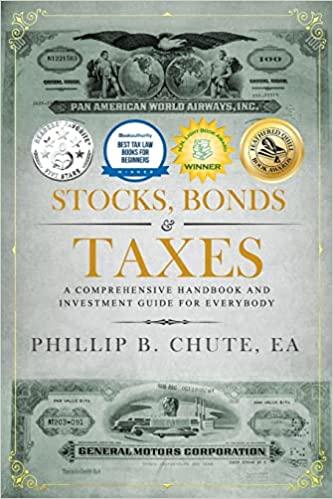Question
Tim Cooks Leadership and Management Style: Building his Own Legacy at Apple Abstract In March 2015, Tim Cook (Cook), the CEO (Chief Executive Officer) of
Tim Cooks Leadership and Management Style: Building his Own Legacy at Apple
Abstract
In March 2015, Tim Cook (Cook), the CEO (Chief Executive Officer) of technology giant, Apple Inc. (Apple), was named as the worlds greatest leader by Fortune magazine. The case study is about Cook and his leadership at Apple.
Cook spent the early years of his career at IBM and Compaq Computer before joining Apple in 1998. The case describes how Cook transformed himself from a soft-spoken operations manager into a high-profile leader at Apple.
Questions:
1) Explain the role of a leader in giving strategic direction to a company and in initiating change.
2) What is the leadership and management style of Tim Cook and compare and contrast it with that of his illustrious predecessor, Steve Jobs.
3) What are the personal characteristics and traits of Tim Cook that made him different from Jobs and also contributed to his success.
4) Discuss and debate whether with Cooks leadership, Apple would continue to remain at the helm of tech innovation.
Introduction
In March 2015, Tim Cook (Cook), the CEO of technology giant, Apple Inc. (Apple), was named as the worlds greatest leader by Fortune magazine. Apple, a US-based company, designed, manufactured, and marketed mobile communication and media devices, personal computers, and portable digital music players, and sold a variety of related software, services, peripherals, networking solutions, and third-party digital content and applications.
Despite being regularly compared with the legendary founder CEO, Steve Jobs (Jobs), Cook had his own strengths. Since becoming the CEO, Cook had transformed himself from a soft-spoken operations manager to a high-profile leader at Apple.
Background Note
The history of Apple can be traced back to the mid-1970s, when three friends Steve Jobs (Jobs), Ronald Wayne (Wayne), and Steve Wozniak (Wozniak) decided to start a business of making personal computers (PC). At that time, Jobs and Wayne worked for Atari and Wozniak was working at HP .
On April 1, 1976, Apple Computers was founded. Initially they assembled fifty personal computers (PC) in the garage of Jobs father. The PCs were custom-built for a local computer store, and were sold at US$ 666.66 per system. They named the system Apple I, and built another 200 PCs before working on the next version. On January 03, 1977, Apple was incorporated and you know the history ;)
TIM COOK: THE JOURNEY AT APPLE
Cook was born in 1960 in Mobile, Alabama. His father was a shipyard worker and his mother worked in a drug store. He had two siblings. Tim Cook graduated from Auburn University in 1982 with a bachelor's degree in industrial engineering.
He went on to earn an M.B.A. from Duke University's Fuqua School of Business in 1988. Talking about his childhood days, Cook reminisced, Growing up in Alabama in the 1960s I saw the devastating impact of discrimination. Remarkable people were denied opportunity and were treated without basic human dignity solely because of the color of their skin. .
STEVE JOBSS SHADOW
Analysts felt that Cooks challenges as a CEO were compounded by the fact that he was succeeding Jobs, whose name was inextricably associated with Apple. Alan Deutschman, in his book, The Second Coming of Steve Jobs, wrote, No one denied that Apples rise was aided immeasurably by his [Steve Jobs] astonishing energy and persuasiveness and charisma and chutzpah (a word that he loved). And it was his personality that created the companys culture and mystique..
COOKS LEADERSHIP AND MANAGEMENT STYLE
As the CEO of the technology giant Apple, Cook chose a democratic management approach. Instead of being a complete contrast to Jobs, Cook adopted some of the legendary founders existing practices and created a unique leadership style. Industry experts observed that the fact that Cook had filled in for Jobs thrice during his medical leave of absence proved that Jobs had a lot of faith in him. Jobs had told Cook that while leading Apple, he should never ask himself What would Steve Jobs do? Instead, he should take decisions thinking of Apple as his own company. In an internal email, Cook declared that he would stay true to the unique culture of Apple. I want you to be confident that Apple is not going to change.
CHALLENGES
Cook had to face his share of criticism too. He was criticized for not preparing himself to face the media glare and the analysis that came with succeeding a legend. He himself agreed with that criticism. While commenting on the criticisms, he said, I have thick skin, but it got thicker. What I learned after Steve passed away, what I had known only at a theoretical level; an academic level maybe, was that he was an incredible heat shield for us, his executive team.
LOOKING AHEAD
In 2014, Apple launched the large-screen iPhone 6 and the even bigger iPhone 6 Plus. The company also introduced a new payment system, Apple Pay, and Apple Watch. The new iPhones sales were impressive with 74.5 million of them being sold in the last quarter of 2014, and the company generating US$18 billion in profits. Between October 2011 and March 2015, the stock price of Apple increased from US$54 to US$126 and the market capitalization touched US$700 billion. Moreover, since 2010, under Cooks leadership, Apples cash hoarding had tripled to more than US$150 billion despite the fact that the company had spent a total of US$92.6 billion in dividends and buybacks, something which was not encouraged during Jobss era.
Step by Step Solution
There are 3 Steps involved in it
Step: 1

Get Instant Access to Expert-Tailored Solutions
See step-by-step solutions with expert insights and AI powered tools for academic success
Step: 2

Step: 3

Ace Your Homework with AI
Get the answers you need in no time with our AI-driven, step-by-step assistance
Get Started


